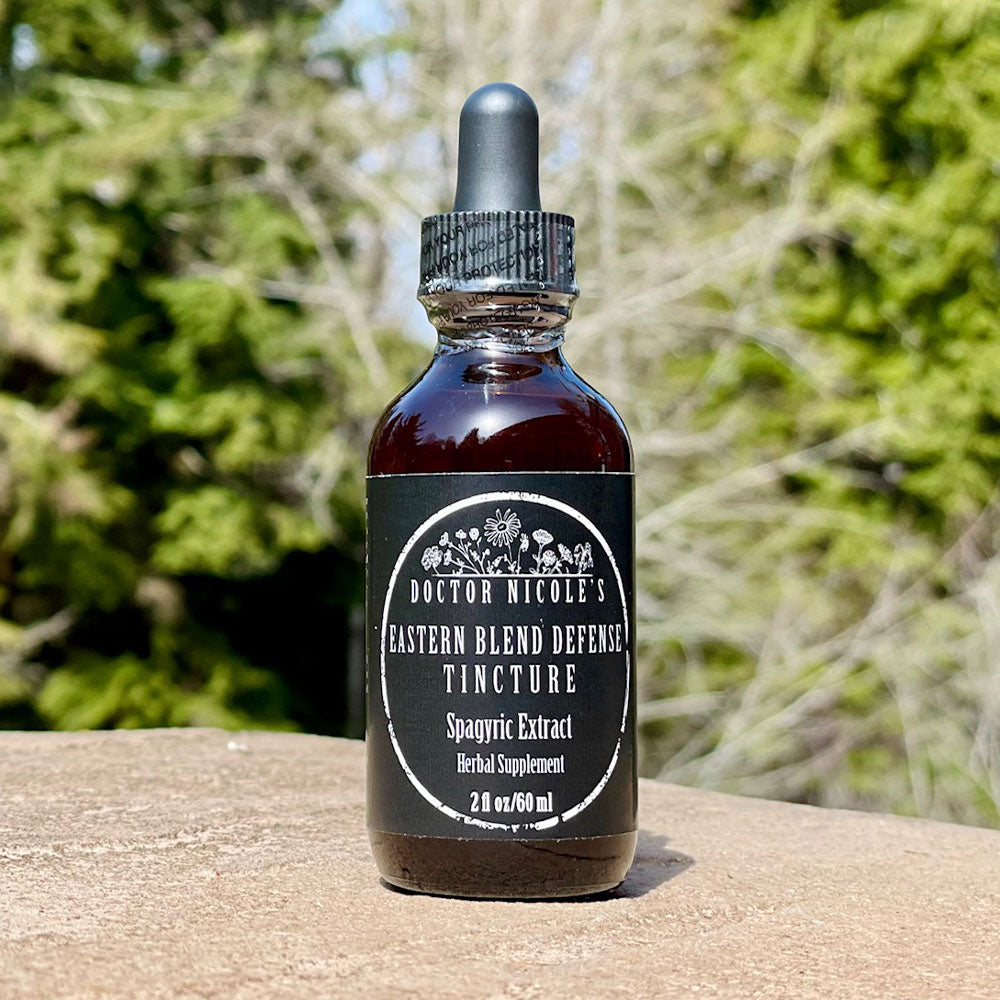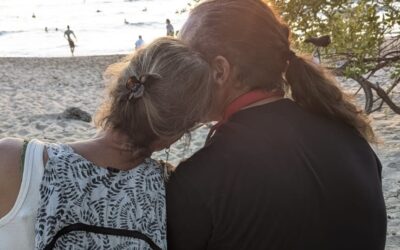Lifestyle Choices and Cancer
In the United States alone, 1,777,566 new cancer cases were reported in 2021 and 608,366 people died from it in 2022. A cancer diagnosis is sobering. Thankfully, there are tangible actions we can take to lower our chances of facing the disease, many of which are simple lifestyle choices. What’s more, a new study found that four in 10 cancer diagnoses and almost half of all cancer deaths in adults are attributed to reversible risk factors. In this post, we will look at how a few simple changes can lend a big return in protecting you against the disease.
Modifiable Risk Factors
Published in the journal CA: A Cancer Journal for Clinicians, the study examined specific lifestyle risk factors that contribute to the development of cancer. What they found is that key, everyday habits and choices play a large role in the disease, including:
- Drinking alcohol
- Smoking cigarettes and secondhand smoke
- Excess weight
- Ultraviolet (UV) radiation
- Consuming red and processed meat
- Eating low amounts of fruits, vegetables, fiber, and calcium
- Sedentary lifestyle
- Certain viruses, such as human papillomavirus (HPV) and hepatitis C
“Information on the proportion and number of cancer cases and deaths attributable to potentially modifiable risk factors is useful for setting more pertinent priorities for cancer prevention and control initiatives,” said lead author Farhad Islami, MD, PhD, senior scientific director, cancer disparity research at the American Cancer Society.2
By far the largest cancer risk factor established in the study was smoking cigarettes with a correlation of “56% of all potentially preventable cancers in men and about 40% preventable cancer cases in women.” The researchers also linked smoking to 30% of all cancer deaths. While not included in this particular study, it is important to note that wildfire smoke is also a health concern, as noted in this post.
The next four leading risk factors established in the study are:
- Excess body weight
- Alcohol consumption
- UV radiation exposure
- Physical inactivity
The team stresses the importance of screening for HPV and hepatitis C viral infections to help reduce your cancer risk. They also recommend avoiding direct sunlight between 10 AM and 4 PM; wearing protective clothing, hats, and sunglasses; and regularly using a broad-spectrum UVA and UVB-blocking sunscreen. You can have a look at my post, “Sunburn, Stings, and Bites: My Top Summertime Skincare Tips!” for all-natural methods that protect your skin.
For resources to help you to shed excess weight, see here. And inspiration for increasing your physical activity can be found on this page. I also highly recommend looking into a whole foods, green Mediterranean diet for disease prevention — including cancer.

Reducing the Risk With Herbal Interventions
While science has yet to develop a sure-fire cure for cancer, modifying our lifestyle habits can go a long way in avoiding the disease. Herbal extracts can also help. My four favorite medicinal herbs in this regard are Chinese skullcap, Japanese honeysuckle, Japanese knotweed, and cordyceps mushroom. Here are the numerous benefits of each:
CHINESE SKULLCAP
- Antiviral – The baicalin and wogonin content in Chinese skullcap (Scutellaria baicalensis) has been shown to exhibit strong antiviral activity for severe respiratory illness, the common cold, and influenza.
- Anti-inflammatory
- Demonstrates great potential for acute lung injury induced by influenza
- Alleviates the symptoms of arthritis
- Calms allergies
- Soothes anxiety, insomnia, and sleep disorders
- Numerous studies have established that Chinese skullcap encourages apoptosis (programmed cell death) of skin, colon, prostate, and bladder cancers.3,4
- Research has shown skullcap also prevents the growth and spread of ovarian, breast, liver, pancreas, bone, and colon cancers.5,6,7,8
- Skullcap protects against oxidative stress and has both neuroprotective and cognitive enhancement effects due to its baicalin content.9
JAPANESE HONEYSUCKLE
- Antiviral- Demonstrates strong antiviral activity against severe respiratory illness.
- Antibacterial
- Anti-inflammatory
- Helps heal upper respiratory tract infections
- Reduces blood sugar levels in diabetic patients.
- Modulates the immune system and significantly increases killer (NK) cells.10
JAPANESE KNOTWEED
- Antiviral – Japanese knotweed contains high concentrations of trans-resveratrol, the active form of the compound most useful to our body. It has strong antioxidant activity and inhibits viral replication. Studies have shown that resveratrol holds promise as a potent antiviral for severe respiratory infections.
- Antibacterial and antifungal
- Boosts cardiovascular health
- Reduces cancer risk
- Improves cognitive function
- Lowers blood pressure
- Helps to heal metabolic syndrome
- Strong activity against both growing B. burgdorferi and non-growing stationary phase B. burgdorferi in the treatment of Lyme disease.
- Reduces neuroinflammation and neurodegenerative diseases such as Alzheimer’s and dementia.
CORDYCEPS MUSHROOM
- Antiviral – Cordycepin from C. militaris is thought to inhibit viral entry and viral replication into the host body’s cells
- Combats fatigue
- Fights chronic inflammation
- Asthma
- Neuroprotective
- Antimicrobial
- Boosts athletic performance
- Improves brain function
- Manages blood sugar levels
- Supports cardiovascular health
- Containing two unique compounds, d-mannitol cordycepin and 3’-deoxyadenosine, cordyceps helps control blood sugar levels by mimicking the activity of insulin.
- Cordycepin also helps to prevent the replication of severe respiratory viruses within the cell.
- Research suggests cordyceps inhibits the growth of cancer cells, including those of the lung, colon, and liver.11,12,13
Each of these powerful herbs are included in our convenient Eastern Blend tincture. If you would like an extra layer of defense against cancer and other health issues, stop by my apothecary today and learn more about this formulation as well as a range of other potent herbal medicinal extracts that can help you achieve your health goals!
Nicole Apelian
Nicole’s Apothecary Products in this Post
Eastern Blend Defense Tincture
References
- Islami, F., Marlow, E. C., Thomson, B., McCullough, M. L., Rumgay, H., Gapstur, S. M., Patel, A. V., Soerjomataram, I., & Jemal, A. (2024). Proportion and number of cancer cases and deaths attributable to potentially modifiable risk factors in the United States, 2019. CA: a cancer journal for clinicians, 74(5), 405–432. https://doi.org/10.3322/caac.21858
- “6 lifestyle interventions could help prevent 4 our of 10 cancer cases” by Corrie Pelc, fact checked by Jill Seladi-Schulman, PhD., Medical News Today, July 17, 2024. https://www.medicalnewstoday.com/articles/6-lifestyle-interventions-could-help-prevent-4-out-of-10-cancer-cases
- Ikemoto, S., Sugimura, K., Yoshida, N., Yasumoto, R., Wada, S., Yamamoto, K., & Kishimoto, T. (2000). Antitumor effects of Scutellariae radix and its components baicalein, baicalin, and wogonin on bladder cancer cell lines. Urology, 55(6), 951–955. https://doi.org/10.1016/s0090-4295(00)00467-2
- Zhang, D. Y., Wu, J., Ye, F., Xue, L., Jiang, S., Yi, J., Zhang, W., Wei, H., Sung, M., Wang, W., & Li, X. (2003). Inhibition of cancer cell proliferation and prostaglandin E2 synthesis by Scutellaria baicalensis. Cancer research, 63(14), 4037–4043.
- Pan, Q., Xue, M., Xiao, S. S., Wan, Y. J., & Xu, D. B. (2016). A Combination Therapy with Baicalein and Taxol Promotes Mitochondria-Mediated Cell Apoptosis: Involving in Akt/β-Catenin Signaling Pathway. DNA and cell biology, 35(11), 646–656. https://doi.org/10.1089/dna.2016.3312
- Ma, X., Yan, W., Dai, Z., Gao, X., Ma, Y., Xu, Q., Jiang, J., & Zhang, S. (2016). Baicalein suppresses metastasis of breast cancer cells by inhibiting EMT via downregulation of SATB1 and Wnt/β-catenin pathway. Drug design, development and therapy, 10, 1419–1441. https://doi.org/10.2147/DDDT.S102541
- Motoo, Y., & Sawabu, N. (1994). Antitumor effects of saikosaponins, baicalin and baicalein on human hepatoma cell lines. Cancer letters, 86(1), 91–95. https://doi.org/10.1016/0304-3835(94)90184-8
- Zhang, H. W., Yang, Y., Zhang, K., Qiang, L., Yang, L., Yang, L., Hu, Y., Wang, X. T., You, Q. D., & Guo, Q. L. (2008). Wogonin induced differentiation and G1 phase arrest of human U-937 leukemia cells via PKCdelta phosphorylation. European journal of pharmacology, 591(1-3), 7–12. https://doi.org/10.1016/j.ejphar.2008.06.024
- Sowndhararajan, K., Deepa, P., Kim, M., Park, S. J., & Kim, S. (2018). Neuroprotective and Cognitive Enhancement Potentials of Baicalin: A Review. Brain sciences, 8(6), 104. https://doi.org/10.3390/brainsci8060104
- Zhou, X., Dong, Q., Kan, X., Peng, L., Xu, X., Fang, Y., & Yang, J. (2018). Immunomodulatory activity of a novel polysaccharide from Lonicera japonica in immunosuppressed mice induced by cyclophosphamide. PloS one, 13(10), e0204152. https://doi.org/10.1371/journal.pone.0204152
- Bizarro, Ana & Ferreira, Isabel & Soković, Marina & Van Griensven, Leo & Sousa, Diana & Vasconcelos, M & Lima, Raquel. (2015). Cordyceps militaris (L.) Link Fruiting Body Reduces the Growth of a Non-Small Cell Lung Cancer Cell Line by Increasing Cellular Levels of p53 and p21. Molecules (Basel, Switzerland). 20. 13927-40. 10.3390/molecules200813927.
- Lee, H. H., Lee, S., Lee, K., Shin, Y. S., Kang, H., & Cho, H. (2015). Anti-cancer effect of Cordyceps militaris in human colorectal carcinoma RKO cells via cell cycle arrest and mitochondrial apoptosis. Daru : journal of Faculty of Pharmacy, Tehran University of Medical Sciences, 23(1), 35. https://doi.org/10.1186/s40199-015-0117-6
- Lee, S., Lee, H. H., Kim, J., Jung, J., Moon, A., Jeong, C. S., Kang, H., & Cho, H. (2015). Anti-tumor effect of Cordyceps militaris in HCV-infected human hepatocarcinoma 7.5 cells. Journal of microbiology (Seoul, Korea), 53(7), 468–474. https://doi.org/10.1007/s12275-015-5198-x







